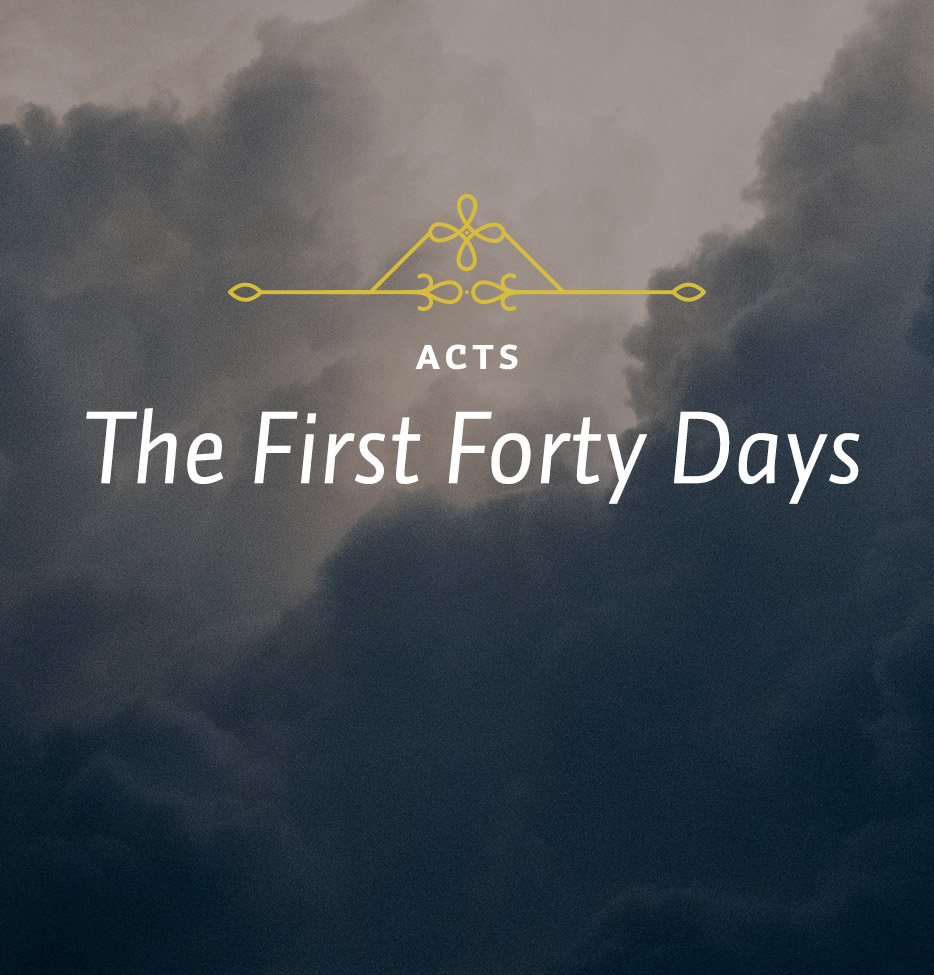Acts is the second volume of a two-volume history. The first volume is the Gospel according to Luke, written by the companion of the apostle Paul, and this is the second volume. Sometimes scholars refer to these books as “Luke/Acts.” We know they belong together, because the introductions link them. Luke begins by a dedication to a man whom he calls “most excellent Theophilus” (Luke 1:1-4), and Acts mentions Theophilus again, referring also to Luke’s “former book” (Acts 1:1).
Ancient books were generally written on papyrus scrolls. It was practical to have a scroll about 35 feet in length. When it got any longer it got too bulky to carry around. So this physical limitation has determined the length of many books of the Bible. A number of them—the Gospels (Matthew, Luke and John especially), Acts, Romans, and some others—are about this length in ancient script. It would seem that Luke, who set out to write a life of Jesus and a history of the expansion of the church up to his own age, decided to do it on two scrolls, the first scroll being given over to the life of Christianity’s founder and the second picking up the story at the ending of the first and carrying it forward to the arrival of the apostle Paul in Rome about thirty years later. Some scholars think that he had probably planned a third one, dealing with Paul’s release from prison and further ministry to the western part of the Roman Empire.
Acts is great history. It is great even from a secular point of view. The English scholar F. F. Bruce has written a book on the New Testament, entitled The New Testament Documents: Are They Reliable? in which he spells out the details of Luke’s extraordinary accuracy.1 Bruce points out that to have written a history like Luke’s was no easy task in those far-off days. Today if you want to write a history of something going on somewhere in the world, it is not at all difficult to do it. For instance, you can go to libraries where you find reference works. In Luke’s day that was not possible. There were very few libraries. Those that existed were not accessible to the common man. And even then, libraries did not have reference volumes. Or even if they did, the events Luke was trying to chronicle had taken place (as the people of that day would have said) in far-off, remote areas of the world—at least at the beginning. No reference books, newspapers or magazines (even if they had existed) would have noticed them.
Nevertheless, as Bruce shows, not only did Luke overcome these difficulties in order to write his history; he also produced what is an amazing and exceedingly remarkable book. The titles given to the rulers of the cities to which the apostle Paul goes are accurate. The flavors of the cities are what we know them to have been from other sources. Antioch, where Paul ministered, was not at all like Jerusalem. Jerusalem was not like Rome. Ephesus had its own flavor. Luke knew what those cities were like and always gets their atmospheres right.
But not only can we appreciate Luke as a secular historian—that is, one who deals with secular things well—we also can appreciate him as the great historian of the early church.
Luke begins his book in Jerusalem, picking up his account with the closing hours of the earthly ministry of Jesus Christ. It is the period between His resurrection and ascension into heaven. Then Luke methodically chronicles the spread of the new religion throughout the Roman world. At the beginning it spread largely through the influence of the apostle Peter. The first half of Acts recounts this. In the second half of the book, Luke shows how Christianity spread even to Rome through the phenomenal life and ministry of the apostle Paul.
Luke does not merely give us a history of the early church, however. He also gives us insight into God’s plan for history. People are puzzled by history. “Does history have meaning?” they ask. Luke tells us that there is a plan to history. God is unfolding it. That plan does not have to do with the rise and fall of empires. It does not have to do with one race or people being more influential than another people. The Bible does not even look at history as having to do primarily with individual successes or attainments. The meaning of history is in God’s work: God reaching down into the mass of fallen humanity and saving some hell-bent men and women, bringing them into a new fellowship, the church, and beginning to work in them in such a way that glory is brought to Jesus Christ. That is what Luke is writing about as he unfolds these events.
Luke’s history opens up and embraces the entire church age. At the beginning, we are in contact with the risen Christ and live, as it were, in a world of miracles. This is a world we have very little contact with today. But then, as the book progresses, we have the feeling that it becomes increasingly like the kind of world we know. At the end, we find the Christians bearing witness, just as we are called to bear witness, and being persecuted, just as we are often persecuted. As we study this book, we find not only sound principles of church growth, but we see the way in which temptation and trials are overcome by the grace of God.
1F. F. Bruce, The New Testament Documents: Are They Reliable? (Downer’s Grove, IL: InterVarsity, 1974).






